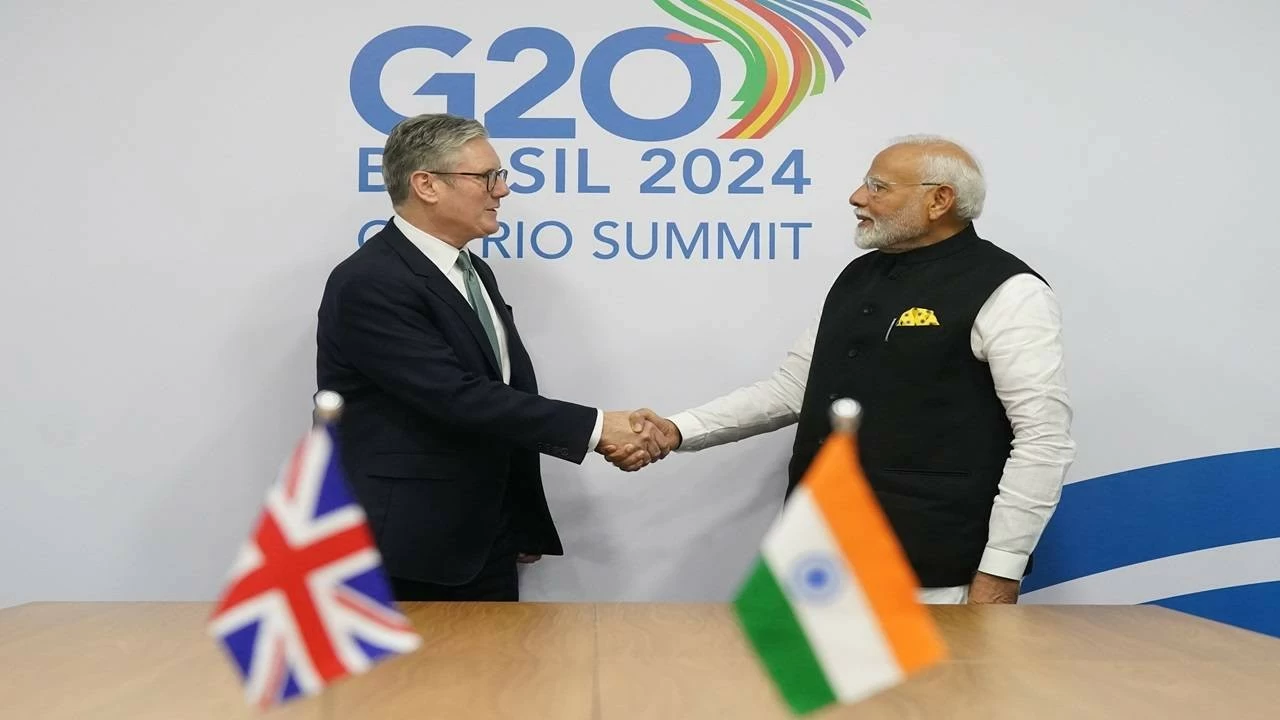

By signing in or creating an account, you agree with Associated Broadcasting Company's Terms & Conditions and Privacy Policy.


By signing in or creating an account, you agree with Associated Broadcasting Company's Terms & Conditions and Privacy Policy.

New Delhi: India and the UK will sign the free trade agreement during PM Narendra Modi's visit to London on July 24. Commerce and Industry Minister Piyush Goyal will accompany the PM.
The free trade pact is officially called Comprehensive Economic and Trade Agreement. It was on May 6 that the two countries announced that negotiations for the trade agreement had concluded. Three years of intermittent negotiations went into the deal.
Whisky, cars, electric vehicles, and textiles are among the goods and sectors that will reportedly benefit from the trade deal, Reuters reported.
India's cabinet okayed the deal on Tuesday, and now, the British parliament's approval is needed once it is signed. This is likely to take a year or so.
The pact is expected to benefit India in a big way -- economically, and strategically. The Indian exports will get a boost, while some UK goods will become cheaper. Bilateral trade between India and the UK is more than $50 billion. This will see a rise.
According to Indian commerce ministry, 99% of Indian exports to Britain would benefit from zero duties under the deal. Textiles, footwear, gems and jewellery, and auto components from India are among the products expected to face zero import duties — down from the current 4% to 16%. Pharmaceuticals, rice, tea, coffee, and marine products will also see reduced tariff. This will make the goods competitive in the UK markets and go a long way in expanding export volumes.
India will also reduce import duties on UK-made cars from the current 100% to just 10%, but the lower rate will apply under a quota system. Brands like Aston Martin and Tata-owned Jaguar Land Rover will be beneficiaries. Reduced duties will make high-end UK cars affordable, and offer Indian consumers more options. Domestic automakers will be spurred to improve product quality, innovation, and customer service due to this.
As India eases import duties on UK goods, Indian manufacturers are likely to get access to the UK market for EVs as well as hybrid vehicles. Tata Motors and Mahindra Electric may benefit from this.
Apart from this, Indian textile and apparel firms like Welspun India, Arvind, Raymond, and Vardhman are likely to get advantage from duty-free access to the UK market. Footwear giants like Bata India and Relaxo are also likely to benefit from easier entry into the UK under the new trade deal.
Import duties on Scotch whisky will be slashed from 150% to 75% to start with, and it will be further reduced to 40% over the next 10 years.
The UK will extend temporary entry for business visitors and service providers like yoga instructors, chefs, and musicians. Indian workers on short-term jobs in the UK, and their employers, won’t have to pay social security contributions there for up to three years.
Growth in exports and UK-related manufacturing in India is expected to create jobs, particularly in textiles and apparel, footwear, gems and jewellery as well as IT.
To top it all, stable trade regulations and stronger legal safeguards under the FTA will give greater investor confidence.












